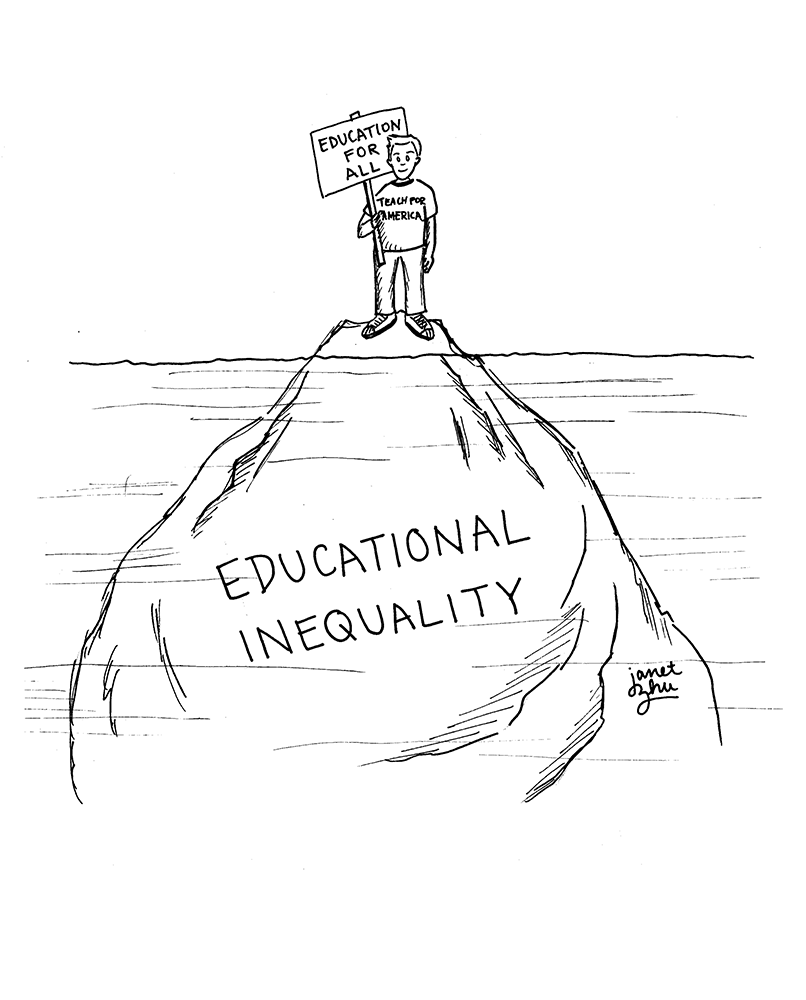 I joined D.C. Reads as a bewildered freshman with the hopes of finding a place on this campus. Honestly, I did not expect the organization to have a substantial impact on my college experience, let alone my political opinions or career decisions. I was wrong.
I joined D.C. Reads as a bewildered freshman with the hopes of finding a place on this campus. Honestly, I did not expect the organization to have a substantial impact on my college experience, let alone my political opinions or career decisions. I was wrong.
After a year of tutoring with the program, I became a site coordinator — a position I held until halfway through my senior year. I now follow local and national education news religiously and am often ranting about some policy decision or another. The state of education in this nation has become my main interest and concern.
This passion therefore affects my future goals, which I started thinking about at the end of my junior year. I considered a few options, including teaching, before settling on social work. One option I never contemplated, however, was Teach for America. I first learned about the program during my freshman year and believed it was an innovative way to address the broken American public school system.
At the time, I agreed with the organization’s main belief: Ineffective teachers are the problem, and effective teachers are the solution. After all, that was the main conclusion of the convincing documentary “Waiting for Superman,” and of TFA alum and former Chancellor of D.C. Public Schools Michelle Rhee. These documentarians and school officials were supposed to know more than me, right?
But I know now that the solution is not that simple. Individual teachers obviously play a significant role in the success or failure of students, and this role should not be discredited or ignored. However, it is necessary to recognize that teachers are restricted under current legislation, such as No Child Left Behind Act and the Common Core State Standards Initiative.
Their influence is also limited by the socioeconomic and racial segregation that continues to plague schools and neighborhoods across the nation. This segregation means that teachers in low-income schools work with a disproportionate number of impoverished, learning disabled and academically struggling students. These patterns are indicative of a deeper flaw affecting not only the public school system, but also all aspects of life in the United States. And this problem cannot be solved through TFA.
Individuals who are introduced to educational inequity through TFA — arguably a large percentage of corps members — do not learn about these latter issues in depth until they begin facing them in the classroom. They are taught that their intelligence and enthusiasm are enough to change the lives of their impoverished students. But when these corps members become alumni, they are then taught that their two years of teaching experience qualify them to make informed education policy decisions. Some may consider these beliefs novel and promising; I consider them naive.
The most widely discussed issues surrounding TFA, such as its lack of adequate teacher preparation and questionable retention rates, are important and should be considered by the organization and any individual applying to it. But I would argue that these weaknesses are simply representative of the organization’s most profound failing: its simplification of the problem of educational inequity.
This simplification, in turn, has a detrimental effect on the students, teachers, parents, schools and communities that associate on any level with TFA corps member or alumni. Why? Because it results in a force of influential individuals who believe and act as though they are the solution and everyone else is the problem: teachers deemed ineffective by NCLB; students who misbehave in class; parents who seem apathetic about their children’s education.
My criticism of TFA concentrates on something greater than statistics — specifically, the mindsets of TFA corps members, alumni and administrators. Allowing these teachers and policymakers into schools and offices only perpetuates the current system because they often fail to consider the entrenched socioeconomic, and racial inequities facing underprivileged students and society as a whole. Failure to address these barriers to achievement first has resulted and will continue to result in a wholly ineffective public school system.
There are thousands of talented, passionate young adults eager to address the educational inequities plaguing this nation. For these individuals, the most obvious way to accomplish this goal is through TFA. I understand this temptation and still respect my peers — including some of my closest friends — who are or will soon be corps members. However, I implore them to reconsider this choice and think about the most effective, not the quickest or simplest, way they can help solve educational inequity in America.
BRIDGET MCELROY is a senior in the College.








